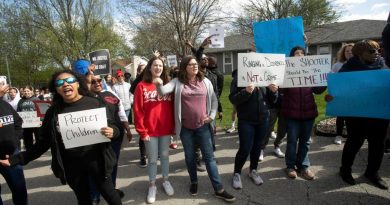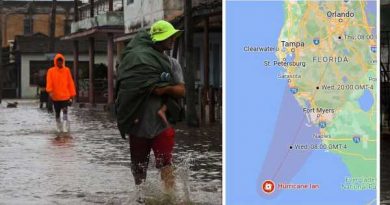Hugs for grandparents & friends could be back from MAY as public allowed to decide if they've been jabbed
HUGS for grandparents and friends could be back from MAY as the Government plans to allow the public to decide if they've been jabbed.
Boris Johnson today confirmed details of how the UK would start to emerge from the Covid lockdown as the jab rollout has slowed the spread of the virus.
🦠 Read our coronavirus live blog for the latest news & updates…
And as part of his roadmap, Brits were given hope they could hug loved ones by May 17.
Speaking today, Boris said: "Today the end really is in sight. A wretched year will soon give way to spring and summer that will be very different to today."
Boris' plan warns Brits to maintain social distancing in steps 1 and 2 of easing lockdown but that they may be allowed to make their own decisions on hugging friends and family under step 3 from May 17.
With the successful rollout of the Covid vaccine, the Government has said the public will be able to make informed personal decisions about social contact.
In the roadmap, Brits are told: "It will remain important for people to
consider the risks for themselves, taking into account whether they and those they meet have been vaccinated or are at greater risk."
This means that someone who has been vaccinated might make the decision that they are comfortable hugging a pal who has also already been jabbed.
It is hoped the country’s 54 million adults will be offered a jab by the end of July.
It comes as…
- Boris Johnson today announced his map was a "one way road to freedom"
- All students will return to England schools from March 8
- Hairdressers will open from April 12 along with gyms
- Pubs will reopen for indoor drinking in May as outdoor service returns in April
- Brits will be able to meet inside from May 17 while following the rule of 6 or two households
- Working from home measures will remain in place until at least June
- Nightclubs will reopen on June 21 as the lockdown is lifted into summer
- A full list of businesses that must stay closed until April 12 was revealed today – with cinemas and bingo halls to stay closed until May 17
It is understood a review will be conducted in the coming months, looking at whether social distancing measures including wearing masks and stay 2 metres apart will continue to be used.
The roadmap released today states: "The Government will continually review the evidence of vaccine efficacy, including its impact on transmission.
"As soon as possible, and no later than Step 3, the Government will update its advice on social distancing between friends and family, including hugging.
"Until then, people should continue to keep their distance from anyone not in their household or support bubble, and keep up habits such as regular hand washing and letting in fresh air."
Social distancing is widely expected to stay in place until June – with Boris Johnson hoping that by end of July, all adults will have received their vaccination.
Scientists have advised Brits to stay 2 metres apart to avoid catching the deadly virus throughout the pandemic.
The virus is transmitted by droplets in the air, settling on surfaces and being picked up by others – or when droplets land directly on you.
This means that keeping a distance will make it less likely for droplets from the nose or mouth to land on you when they sneeze or cough.
The rule of six rule will also stay in place for outside mixing, allowing people to gather with their friends in groups.
And Brits will be free to play outdoor sports again, such as golf and tennis.
Meanwhile, loved up couples were given clarity over wedding rules in Boris Johnson's speech in the Commons today.
It comes after a study today revealed Covid vaccines are slashing severe cases of the disease by up to 94%.
It’s the first set of data to come out of the jab programme in the UK, in which more than 17 million people have had a first dose of either the Oxford or Pfizer vaccine.
Researchers examined coronavirus hospital admissions in Scotland among people who have had their first jab and compared them with those who had not yet received a dose of the vaccine.
Scientists from the University of Edinburgh, the University of Strathclyde and Public Health Scotland examined data on people who had received either the Oxford jab, made by AstraZeneca, or the Pfizer jab.
By the fourth week after receiving the initial dose, the Oxford/AstraZeneca vaccine was shown to reduce the risk of hospital admission from Covid-19 by up to 94 per cent.
The Pfizer jab reduced hospital risk by 85 per cent.
Source: Read Full Article






